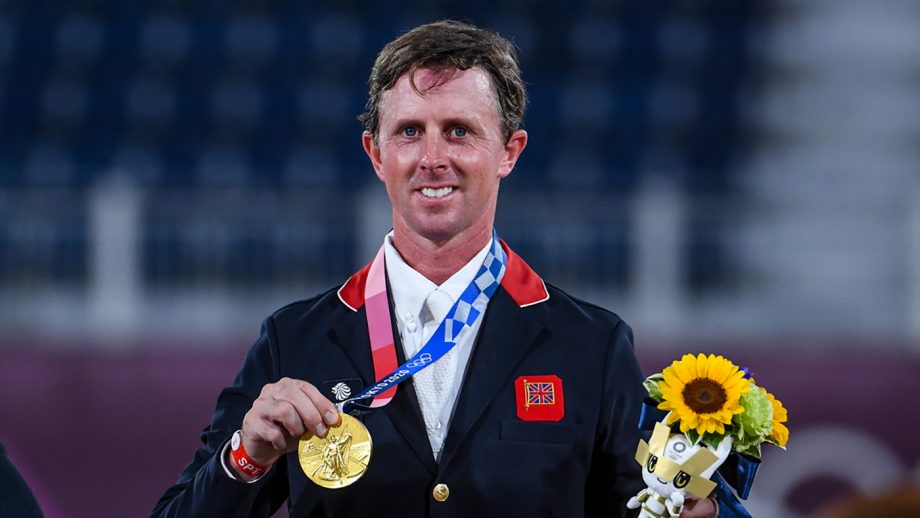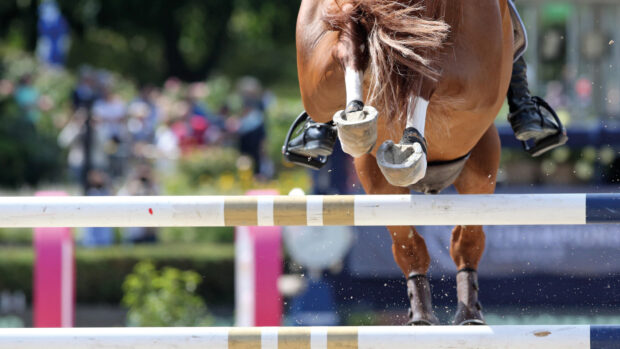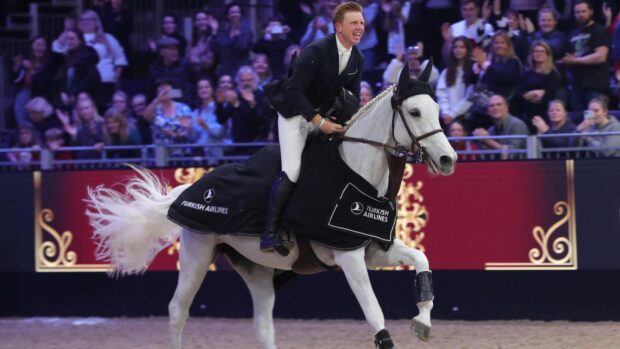BRITAIN’S inspirational performances at the Tokyo Olympics have presented the horse world with “an amazing gift” that it “must grab with both hands”, leading figures believe.
British riders took home five medals from the Games – two gold, a silver and two bronze – equalling (in numbers) the London 2012 tally.
“We knew the names [of those riders from] way before us who had been successful at the Olympics. So for our names to be added to that list is a huge honour and achievement. But we are all normal people,” Tokyo eventing team gold medallist Oliver Townend said in a BBC interview.
“We are not all posh horse people, as we might be perceived, we are all from very normal backgrounds and I hope that it allows kids who are also from normal backgrounds who have a dream to [realise] it is possible. If you have that dream and you’re willing to dedicate your life to it, it can happen. It has happened to us three.”
The industry saw a measurable uptick in the wake of British equestrian success at the home Games, and there are hopes Tokyo’s results can grow the sport further.

As well as a boost to sporting bodies’ membership figures, such as British Dressage’s 20% increase between London 2012 and the 2018 World Equestrian Games, the significant impact from equestrian sport’s home games in 2012 hit across the industry. For example, one year after the Games, H&H reported short-term hikes included record ticket sales and crowds at Olympia and Badminton respectively. Some colleges reported that the Olympics inspired more students to pursue a career in the industry, with a surge in applications on certain courses after the Games.
New British Eventing (BE) chief executive Helen West told H&H that Olympic inspiration is “essential to encouraging new talent into the sport”.
“There is no doubting that the achievements of Tom [McEwen], Laura [Collett] and Oliver have presented our sport [with] an amazing gift, one we must grab with both hands,” she said. “Harnessing the positivity around these medals will be crucial for our sport and you can be sure that it will be a major focus for all of us at BE as we move forwards.”
She added: “We need to champion the fact that we have a network of fantastic riding establishments across the UK that are there, ready to offer opportunities to those who want to experience that unique experience of learning how to build a partnership with a horse.
“There is no denying that it is a long and challenging path to the top with countless hurdles along the way, but the rewards are plentiful. If this summer has reminded us of anything, it is just how special our sport truly is – one of the only sports where women compete on a level playing field with men, a sport for all ages and a sport where two hearts come together to compete as one unit based on unity and trust.
“Eventing is a sport like no other and now is the time to shout about it. It is also unique that the weekend following Tokyo you could compete alongside [the likes of] Oliver Townend in a BE100 section at your local event.”

The drive towards participation is echoed by the British Horse Society (BHS) and British Equestrian (BEF).
BHS head of business support Sarah Dale told H&H the charity has seen an increase in participation in riding schools nationwide since lockdown lifted.
“We hope this continues with the success of Team GB’s equestrians at Tokyo, and the Paralympics around the corner, and that people across the country have been inspired to get into riding or get back in the saddle,” she said, adding that the BHS has 447 approved centres across the UK, along with other initiatives such as its challenge awards, careers pathways and new Pony Stars campaign to help match that inspiration with real ways to get involved.
A BEF spokesman told H&H the Olympic buzz is “more important than ever” as its centres rebuild Covid – and are ready for that demand.
“Every four years we get the chance to showcase our sports on the global stage to a new audience who may be seeing them for the first time, or just have an interest having watched them at a previous Games. The importance and impact of that can never be underestimated – and why we work tirelessly to keep our standing as an Olympic sport – and collectively we must continue to do so,” she said.
Interest in dressage took off on social and traditional media, with the hashtag “dressage” generating more than 1.3bn views on TikTok, according to figures shown on its platform, and high-profile fans such as golfer Rory McIlroy saying he finds it “mesmerising” helping push it into the spotlight.
“You can’t generate this sort of publicity easily but each cycle – this is the sort of unique, feel-good fun that comes from the Olympics,” the BEF spokesman told H&H.
“The build-up and immediate post-Games period also gives us a shot at media coverage in outlets we might not normally feature, which helps with the profile, too.
“The Paralympics give us a platform to showcase the Riding for the Disabled Association and the amazing work they do, which then feeds into British Dressage and British Showjumping as riders transition to riding for therapy to being bitten by the competition bug and on to ambitions of representing your country.”
She added that the five medals “against the odds”, including a second consecutive individual Olympic showjumping champion, a first eventing team gold for 49 years and Charlotte becoming the most decorated British female Olympian, gave “everyone a buzz”.
“So much history was made this time around at a time when we needed it most; that’s the power of the Olympics – stories and results to inspire us all in some way,” she said.
“Here’s to the Paralympics having a similar impact and continuing the feel-good factor.”
You might also be interested in:

Britain win Olympic eventing team gold at Tokyo 2020

Ben Maher wins Olympic showjumping individual GOLD at Tokyo Games

Germany win Olympic gold in Tokyo, while Britain claim bronze, USA silver

‘He grew wings for me’: how Ben Maher and Explosion W won Tokyo Olympic gold

Subscribe to Horse & Hound magazine today – and enjoy unlimited website access all year round






